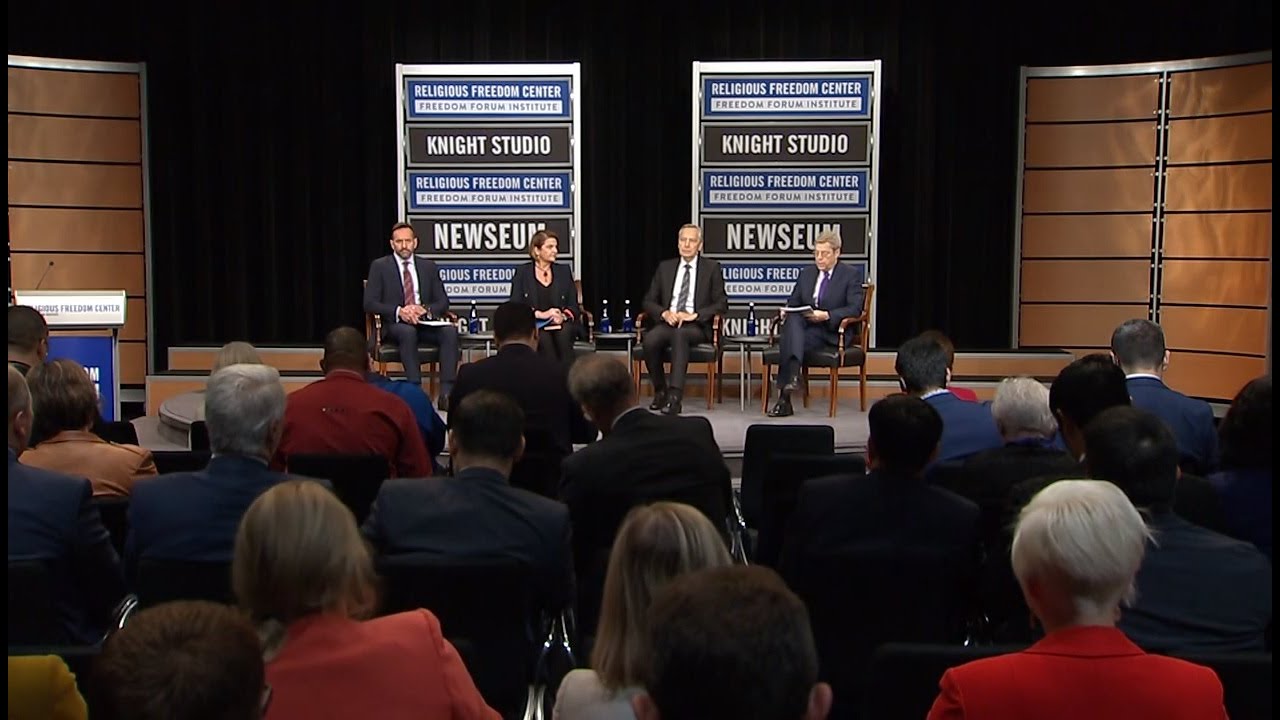Category: English
-
Europe needs a “climate change on religious freedom,” says EU Special Envoy
According to the latest report of the Observatory on Intolerance and discrimination Against Christians in Europe, there have been in the last year about 500 cases of anti-Christian discrimination on European soil. Christianity is the most persecuted religion in the world. In Europe, the persecution might be subtle or take place in the form of
-
We need FoRB climate change!
Scaling up European Union support to Freedom of Religion or Belief IMPORTANCE OF FoRB Freedom of religion and belief is a condition of good governance, important for believers and non-believers. It is a civilizational objective and criterion, representing freedom of thought, conscience, religion. FoRB protection is a precondition of sustainable development. Why? Development is another
-
The Network for Religious and Traditional Peacemakers Presents Recommendations during a Meeting host
Freedom of Religion and/or Belief (FoRB) should be a fundamental human right for all, yet has faced increased threats around the world. In response to the growing threat, Special Envoy for the promotion of freedom of religion or belief outside the EU, Mr. Jan Figel, hosted a meeting in Brussels on how to increase EU
-
-
How to scale up EU support to Freedom of Religion or Belief outside the EU
Presentation of the work and the recommendations of the Special Envoy, Ján Figeľ 15 – 16 October 2019, Stanhope Hotel – Rue du Commerce 9, Brussels, Belgium https://docs.wixstatic.com/ugd/7dce12_61cf43de9a6a405fa4010c79892b7d01.pdf
-
“Never Again”: A Panel at the Newseum in Washington, DC on October 11, 2019
“Never Again”: What Can Be Done to Prevent and Address Religious Persecution A Panel at the Newseum in Washington, DC on October 11, 2019
-
The journey to freedom
EU Special Envoy for Freedom of Religion and Belief, Jan Figel talks about how the Union helped Aasia Bibi make her way out of Pakistan “I am very grateful to Jan Figel, EU special envoy for Freedom of Religion and Belief (FoRB); and Muhammad Aman Ullah, a Pakistani human rights activist, for their thorough support.
-
Persecuted Pakistani Christian woman builds new life in Canada
Nine years after being falsely accused of insulting the Prophet Muhammad while engaged in a row with her neighbours, Pakistani-born Christian Asia Bibi and her daughters have been relocated from Lahore to an undisclosed safe location in Canada where they are now all living together. Bibi had spent eight years on death row until October
-
Release of Asia Bibi shows promise for religious freedom
Budapest, Hungary, Sep 12, 2019 / 12:02 am (CNA).- A European Union official who played a role in working for the release of Pakistani death row inmate Asia Bibi said the outcome shows the potential of international cooperation to promote religious freedom. Ashiq Mesih and Eisham Ashiq, Asia Bibi’s husband and daughter in Rome April
-
Asia Bibi thanks EU’s Figel in her first live message from exile
“I want to thank an angel, a person who helped me from my imprisonment until now: that person is Jan Figel, the EU’s special envoy for Religious Freedom,” says Asia Bibi, the Pakistani Christian woman who spent eight years on death row after being accused of blasphemy, in her first live message from her exile







